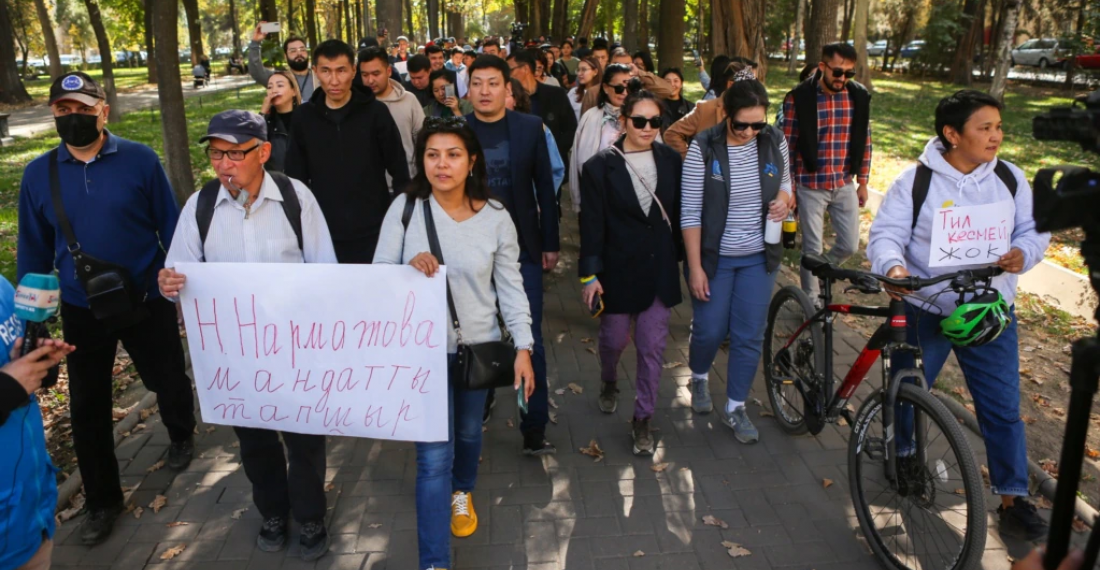On Sunday (23 Oct), multiple activists and politicians in Kyrgyzstan were arrested for their resistance to a government plan to hand over a major water reservoir to Uzbekistan as part of a border demarcation deal. Among the detained was opposition politician Ravshan Jeenbekov, who is also the founder of Next TV.
The arrest of activists comes as the Kyrgyz government is continues to backslide on freedom of the press and freedom of speech, with the Kyrgyz government poised to pass legislation that will put independent media in an increasingly more difficult position.
Since President Sadyr Japarov was elected in 2021, there have been several signs that the government is continuing to mount a more persistent attack on independent media. This includes the arrest of Bolot Temirov last January, owner of independent news outlet Temirov Live, who had focused on exposing high-level corruption.
Allegedly, this month a lawmaker petitioned to close three news outlets, chiefly because they receive foreign funding. It concerns local outlets Kloop and Kaktus Media, as well as Radio Azattyk, the Kyrgyz branch of the US government-financed Radio Free Europe/Radio Liberty.
Furthermore, a media law is currently being drafted that has the backing of the presidential administration. The law will demand all local news outlets to re-register by June 2023, as well as requiring them to provide far reaching details about corporate structures and financial sources. If they do not comply, they face closure.
Opponents of the law fear the legislation will complicate and constrict the practice of independent journalism in Kyrgyzstan.
source: commonspace.eu with agencies
photo: Gulzhan Turdubaeva, RFE/RL






